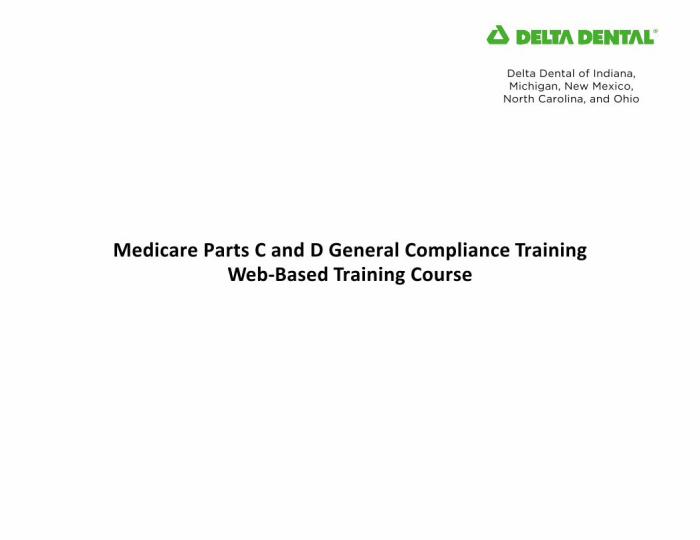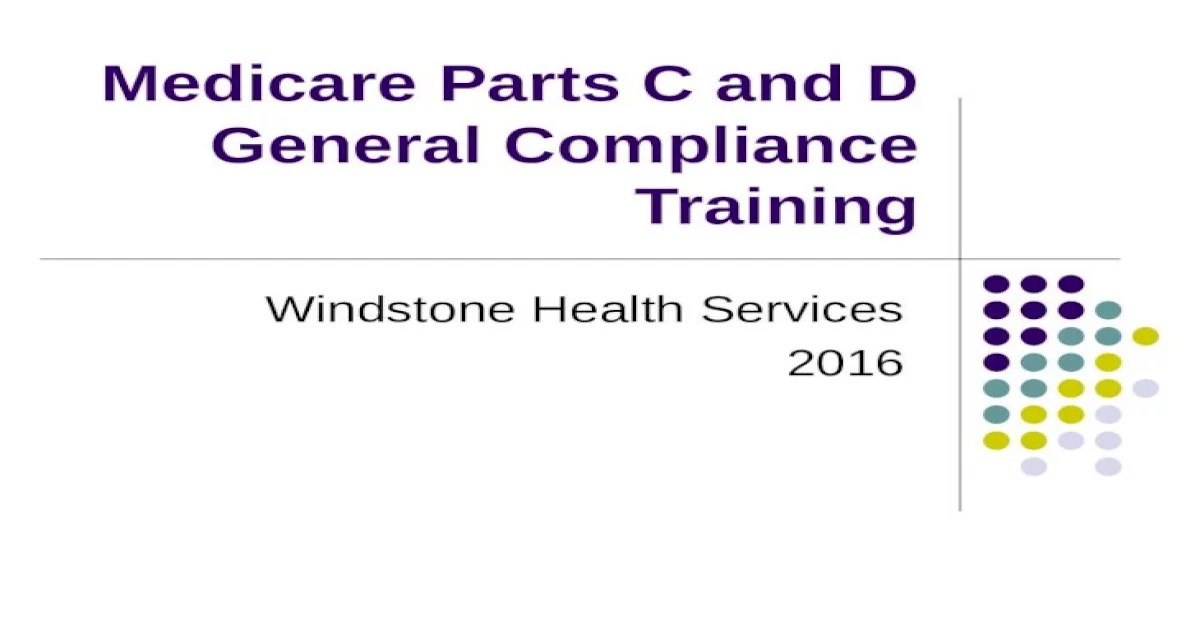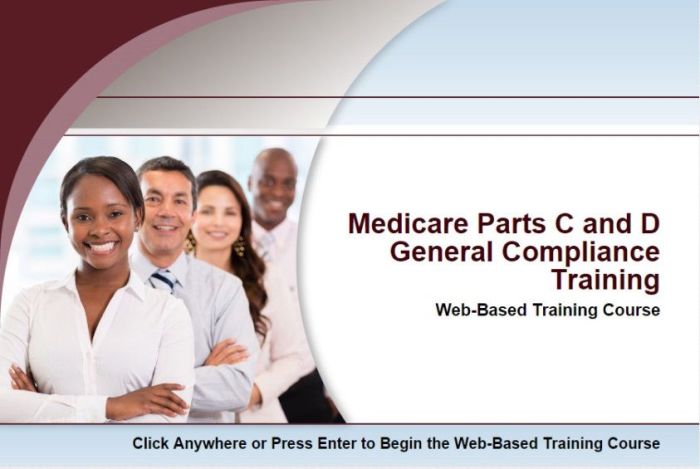Medicare Parts C and D General Compliance Training is a comprehensive guide for healthcare providers seeking to ensure compliance with the complex regulations governing these programs. This training equips providers with the knowledge and tools necessary to navigate the intricate landscape of Medicare Part C and Part D requirements, empowering them to deliver high-quality care while mitigating potential risks and penalties.
The training covers a wide range of topics, including an overview of Medicare Part C and Part D, key compliance requirements, specific compliance topics, and best practices for ensuring ongoing compliance. By participating in this training, providers can gain a thorough understanding of their obligations under Medicare Part C and Part D, enabling them to operate their plans in a compliant and ethical manner.
1. Overview of Medicare Part C and Part D

Medicare Part C and Part D are optional Medicare plans that provide additional coverage beyond traditional Medicare Part A and Part B.
Medicare Part C (Medicare Advantage)is a managed care plan that provides all of the benefits of Medicare Part A and Part B, plus additional benefits, such as prescription drug coverage, dental coverage, and vision coverage.
Medicare Part Dis a prescription drug coverage plan that helps pay for the cost of prescription drugs.
Eligibility Requirements for Medicare Part C and Part D
- You must be enrolled in Medicare Part A and Part B.
- You must live in the service area of the plan.
- You must pay the monthly premium for the plan.
2. Compliance Requirements for Medicare Part C and Part D
Medicare Part C and Part D plans must comply with a number of federal regulations.
The Centers for Medicare & Medicaid Services (CMS) is responsible for enforcing compliance with these regulations.
Consequences of Non-Compliance
- Fines
- Suspension from the Medicare program
- Termination of the plan
3. General Compliance Training for Medicare Part C and Part D

Medicare Part C and Part D plans should develop a comprehensive compliance training program for their employees.
The training program should include the following:
- An overview of the Medicare Part C and Part D compliance requirements
- Specific training on the key compliance topics
- Guidance on how to report compliance concerns
4. Specific Compliance Topics for Medicare Part C and Part D: Medicare Parts C And D General Compliance Training
The following are some of the specific compliance topics that should be covered in training:
Marketing and Enrollment Practices, Medicare parts c and d general compliance training
Plans must ensure that their marketing and enrollment practices are fair and accurate.
Claims Processing and Payment
Plans must have a system in place to process claims accurately and timely.
Grievances and Appeals
Plans must have a process in place for beneficiaries to file grievances and appeals.
Fraud and Abuse
Plans must have a system in place to prevent and detect fraud and abuse.
5. Best Practices for Medicare Part C and Part D Compliance

The following are some of the best practices for ensuring compliance with Medicare Part C and Part D requirements:
- Develop a compliance plan that is tailored to the specific needs of the plan.
- Implement a compliance training program for all employees.
- Establish a system for monitoring compliance.
- Regularly review and update the compliance plan.
FAQ Summary
What are the key compliance requirements for Medicare Part C and Part D plans?
Key compliance requirements include adhering to marketing and enrollment regulations, ensuring accurate claims processing and payment, handling grievances and appeals effectively, and preventing fraud and abuse.
What are the consequences of non-compliance with Medicare Part C and Part D requirements?
Non-compliance can result in penalties, fines, exclusion from Medicare programs, and reputational damage.
How can healthcare providers ensure ongoing compliance with Medicare Part C and Part D requirements?
Ongoing compliance can be achieved through regular training, internal audits, monitoring of compliance metrics, and prompt corrective action when deficiencies are identified.